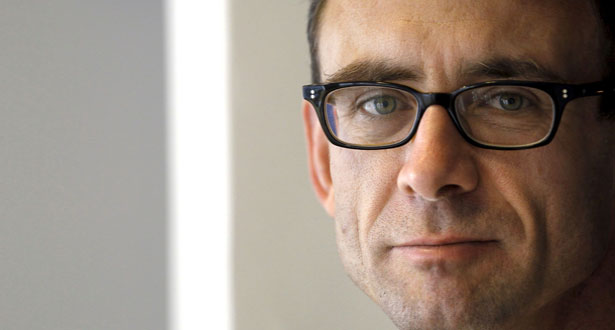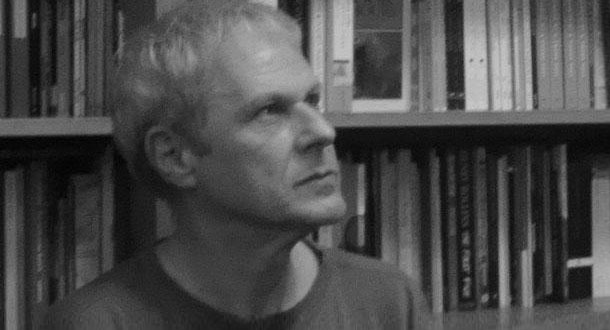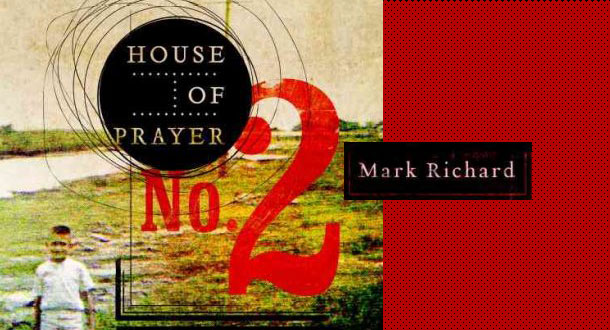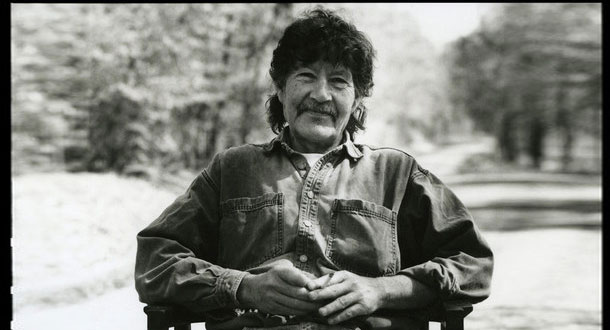On February 12, 1971, a twenty-year-old nursing student, Patricia Mann, and her nineteen-year-old boyfriend, Jesse McBane, left a Valentine’s Dance in Durham, North Carolina to park down a secluded lovers’ lane. Two weeks later, their bodies were found tied to a tree deep within the woods. Their murders remain unsolved.
The Long Dance is an eight-part podcast that takes listeners through the mystery of the Valentine’s Day Murders. Built on exclusive access to every available piece of evidence, intimate interviews with family and hundreds of hours with former and current investigators, this podcast peels back the secrecy to offer listeners an unparalleled look at what’s happened since that cold night in 1971. The Long Dance is produced by crime fiction author Eryk Pruitt, investigative reporter Drew Adamek, and sound engineer Piper Kessler.
Today, Eryk stopped by to answer some questions about the upcoming series, as well as his latest novel, What We Reckon, out now from Polis Books.
You just finished one hell of a book tour promoting your new novel, What We Reckon. How much weight did you gain?
Dude, Texas alone probably slapped an extra twenty-five pounds on me. Between the brisket, sausages, burgers, kolaches, tacos, and queso…I need to learn to quit asking for the full-pound portion when a half-pound will do. Seriously, I'm a cheeseburger away from a B-cup.
All of your fiction falls under the crime genre. Does that mean you’re also a criminal? What’s the coolest crime you’ve ever committed? It’s okay. I’m not a cop. If I was, I’d have to tell you. It’s the law.
I grew up glamorizing drug dealers and junkies, so it was only natural that I find myself in the company of folks slinging dope. I believe, in those circles, you have two choices laid out in front of you: Become a crack head, or become a writer. Street corners and homeless shelters are filled with people who may have zigged where I zagged.
 How did What We Reckon come about?
How did What We Reckon come about?
It was originally titled The Jack Off, but the good folks at Polis Books prompted me to adopt a less provocative title. I'm so glad they did. I don't think half the bookstores that allowed me onto their property to read my book would have done so were I peddling pages from The Jack Off.
But I love what the kids are calling "Prestige TV." I wanted to write two seasons of a TV show that showed the ups and downs of both getting high and getting sober. Since I'm not crazy about the idea of moving to LA, I figured writing What We Reckon could help me scratch that itch. It's structured the same way two seasons of prestige TV would be structured. This way, if someone out there wants to buy and adapt it, they won't have to work as hard to do so.
Have you ever actually met someone who didn’t like breakfast tacos?
What kind of asshole doesn't like breakfast tacos?
All right, enough boring book stuff. Let’s talk about The Long Dance, which is your new true crime podcast about the 1971 murders of Jesse McBane and Patricia Mann. How were you introduced to the case? And why did it stick with you?
I met with an investigative reporter who wanted to recruit me to help him write a long form investigative piece and he asked me to find a case I thought would be interesting enough to research. We agreed to meet a week later with five potential cases. I only showed up with one: North Carolina's Valentine's Murders. It's a story whispered by townies, tales told to kids before bed back in the 70s and, after the ink dried, none of the new arrivals to Durham, NC, seemed to know about it. It shocked me that something so terrible could happen a mile from my house and no one knew anything about it. I can't drive home without passing the spot where they were abducted, nor the site where their bodies were found. It's one of those things that, once you get started, you can't leave it alone. Every twist and turn of this story is so addicting and there are days that go by where I think of very little else. I hope I can translate that enthusiasm to a large audience. It's a story that needs to be told.
I want to begin by saying how surprised and impressed I was at how well-produced this podcast is. Which seems like I expected it to sound like shit, but that’s not what I mean. It’s clear from the get-go how much time you guys put into this thing’s presentation. How much experience with audio did you have before getting into this? This is your first involvement with a podcast, right?
Thank you. I have worked with our sound engineer, Piper Kessler, for many years now. It's my opinion that she's the best sound tech this side of the Mississippi. She's done the sound for nearly all my short film work. We did an audio version of my novel Dirtbags together, and as soon as the discussions began to move this into podcast form, there was no question that I wanted Piper on this.
You’re also a writer and filmmaker. Did you consider writing a true crime book about this case, or possibly making a documentary? Why did you feel a podcast was the best format for this particular story?
The first podcast I ever listened to was Serial and I went nuts. When it was finished, I scoured the internet for something similar, but there was nothing like it. I dreamed of doing something similar, but had no idea how a fiction writer would approach something that detailed and nuanced. I shelved it to the back of my head and hoped one day I'd find that opportunity.
When this came up, I jumped at the chance. I didn't want to do a documentary because it's hell trying to organize a film crew, and many of these interviews with original investigators and family members (and even the living suspect) could never have been achieved with a camera crew. It was much easier to bring in a recorder and put the writing up front.
My end goal has always been to write the true crime version of this story. There's so many details that couldn't fit into the tight structure of our eight-part podcast. I'd love the opportunity to Truman Capote the hell out of this story.
Tell me about your co-host.
Drew Adamek is an investigative reporter out of Chicago with some experience gathering research for true crime TV shows. We worked well on this. He doesn't like to write, and it's all I want to do. I'm a horrible interviewer, and he can make our subjects sing. We covered one end of North Carolina to the other with this story, and in doing so we had some scary incidents during interviews. One subject in particular was quite unhinged and led us into his living room which was filled with six foot tall cat cages. After we'd been led into the house and the doors locked behind us, Drew and I both realized we hadn't told our wives where we were going. While I was calculating how long it might take for the cops to find us, Drew had ice in his veins, man. He kept interviewing this dude until we got the audio we needed, then got us out of there.
I listen to a lot of true-crime podcasts and they almost never make me cry. This one, however, it hit me right in the gut. Listening to the friends and family talk about the victims…it hurts. The pain is still fresh, even after all these years. Can you talk about how you contacted them all and explained your intentions? How did they take it?
Nearly everyone was skeptical at first. It took a while for them to trust us. The key was Carolyn Spivey. Once we gained her trust, she put the wheels in motion to get everyone else to open up to us. But in every interview, folks would break down. For them, it's never gone away. We interviewed dozens of people and no one carried the same brand of pain. Each of them had their own take on concepts like "closure" and "justice."
You also interviewed some of the original investigators. How forthcoming were they with you initially? How did you convince them you were serious about this?
The main person I had to convince was Captain Tim Horne of the Orange County Sheriff's Office. Once we convinced him we weren't playing around, he would vouch for us whenever needed. With the original investigators, I would start off by telling them everything I knew. Since 95% of this information had never been released to the public, they could tell I was serious. But every one of them to a T still thinks about this case, forty-six years later. They were all great investigators, but this one case still haunts them.
Something like this, holy shit, I can’t even imagine the level of research that went into it. So, why don’t you just tell me instead?
Fourteen months. It was a full-time job. I would spend entire days down at the Sheriff's Office with the case file, then hop in the car with Drew and drive to some corner of North Carolina to get audio from someone involved. I am now fluent in microfiche. Drew taught me how to fish ancient records out of a courthouse. I was able to walk confidently through a sheriff's office without getting the fidgets.
You interviewed the man you believe is responsible for these killings. How the hell did you even get him to agree to that?
We extensively researched this suspect and his behavior, based on 46 years of notes from investigators. We built a profile based on this man and felt the best way to approach him was with a lovely actress armed with an array of improv skills and a tight sweater. Drew and I accompanied her while she asked him questions about his illustrious career, then halfway through the interview we took over and changed the subject. The result was bone chilling.
 What was going through your head, sitting in the same room as him?
What was going through your head, sitting in the same room as him?
The man was charming. I began to feel guilty, as if we were tormenting an eighty year-old man. After all, he'd never been charged with anything, and he seemed so forthcoming while we were so duplicitous. But I'd remember those crime scene photos, and testimony from people in his life and those who had come in contact with him and all the horrible behavior that has been documented…But it wasn't hard to imagine how he'd conned people for so long.
Also, when we began asking questions about Pat and Jesse, he had a very visible reaction. During our interview, I had five listening devices and a hidden camera attached to my body. I've watched that tape over and over because I've never seen anyone react that way. Like I said: Bone chilling.
Walk me through the process of creating this podcast. Did you write out the whole season ahead of time? How many hours of interviews did you end up recording, and how did you decide where to piece them together to form a coherent season of true crime?
I read every page of the case file at least four times. Many parts I know by heart. While we compiled all of that info, we secured interviews from family and original investigators, as well as many hours of recordings with Captain Horne, who serves as our guide through the investigation. Once we felt we'd gotten everything, I sat down and started writing episodes. Episodes took a lot longer to write than I'd originally expected, but it was a brand new process. I have to structure our narration and the arc of the story around interviews and quotes we'd gotten from our subjects, which could take the story in an entirely new direction.
And then there would STILL be developments. Not to be a tease, but we discovered something late in the game that nearly took a wrecking ball to our entire case. That is revealed in Episode Six and I'll just tease it by saying it's like Watergate. Just like it.
Can we expect a season two continuing the investigation of this case? Or is everything you set out to cover finished in the first series? If so, do you plan on tackling another case for a season two, or are you finished with the podcast altogether and moving on to other projects?
Hopefully there will be some closure with Pat and Jesse. It's a long shot, but I'll say that we participated in the investigation by securing DNA for the case. Captain Horne's plan is to measure that DNA against the rope and, in a perfect world, it will come back with a match and the 46 year saga for the families and friends of Patricia Mann and Jesse McBane can finally come to a conclusion.
However, all of the detectives we've interviewed for this case have told us countless other stories about the old school Durham underbelly and I found I could listen to them for hours. This entire process has been so addicting that I'd love to take another swing at one of these cases. So, I'm game.
You’ve spent over a year of your life on this podcast. What do you hope to accomplish with it?
The main goal has been to create the definitive, substantive record of the investigation into the murders of Patricia Mann and Jesse McBane, and the lives touched by this crime. So much of this information was kept from the public that, we believe, if we shine a light on it, something may develop.
But I'm lying if I don't admit we're hoping that DNA evidence or some random phone call on our tip line could lead to this crime being solved. I visualize that outcome every day and could think of no happier ending to this story.
Subscribe to The Long Dance for future updates.
UPDATE: THE LONG DANCE IS NOW AVAILABLE!

About the author
Max Booth III is the CEO of Ghoulish Books, the host of the GHOULISH and Dog Ears podcasts, the co-founder of the Ghoulish Book Festival, and the author of several spooky books, including Abnormal Statistics, Maggots Screaming!, Touch the Night, and others. He wrote both the novella and film versions of We Need to Do Something, which was released by IFC Midnight in 2021 and can currently be streamed on Hulu. He was raised in Northwest Indiana and now lives in San Antonio.

.jpg)




